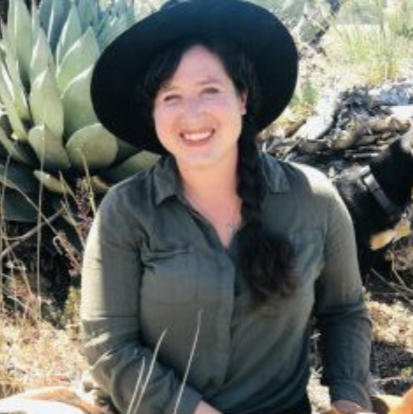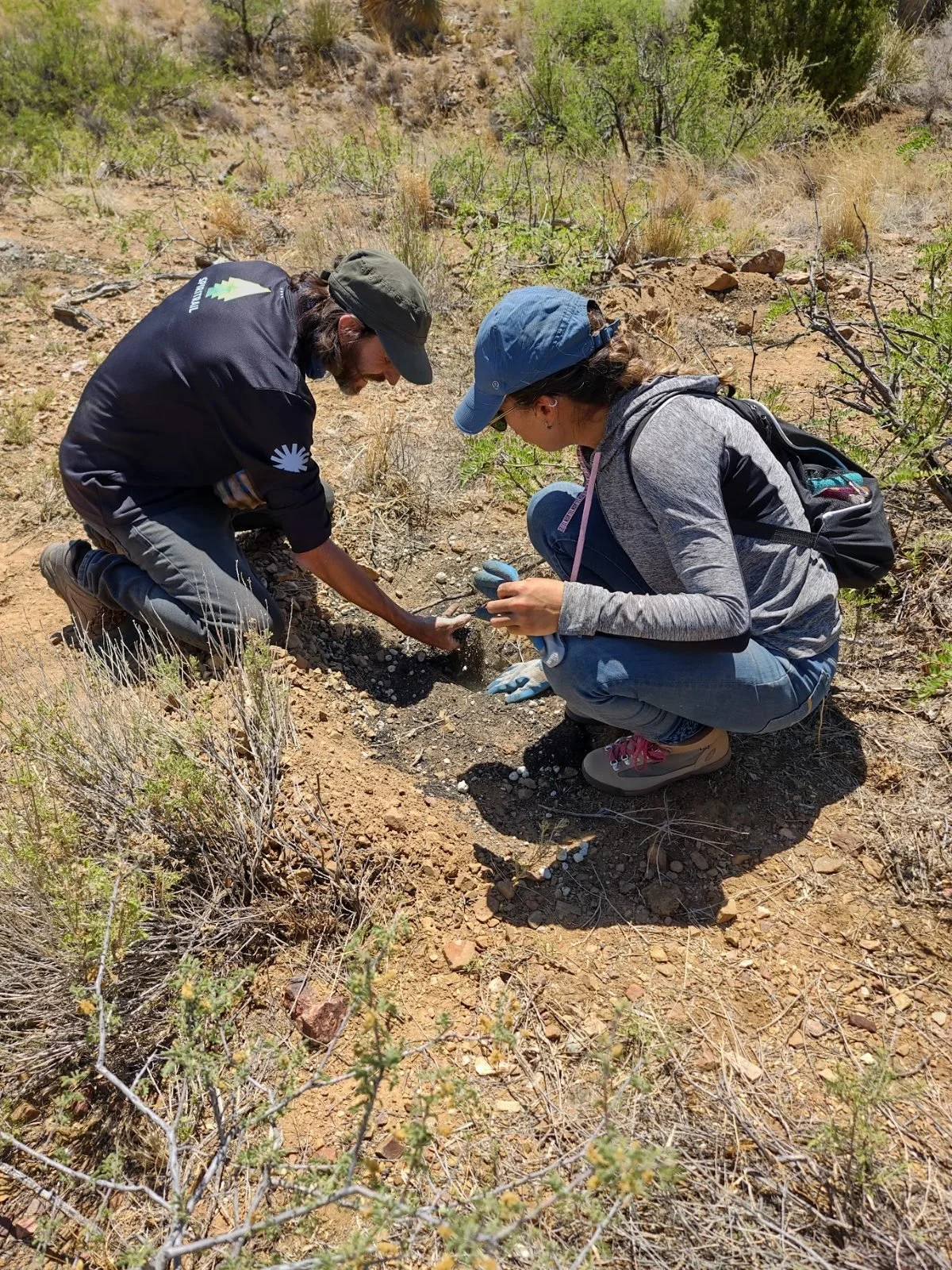
The 3rd annual Ecological Restoration Summit at Diamond Mountain Retreat Center
At this year’s summit, volunteers will create habitat for the endangered Mexican long-nosed bat, recently confirmed in our area by Citizen Scientists and the U.S. Fish and Wildlife Service. With 160 donated agave plants—its preferred nectar source—provided by Borderlands Restoration Network and Bat Conservation International, we’ll plant a bat garden to support these vital nighttime pollinators. Strengthening their habitat helps the entire desert ecosystem thrive.
Our guest speakers will present on bats, nighttime pollinators, nocturnal animals, and the habitats they need to survive.
Enjoy Diamond Mountain´s Night Sky
Meal times. Exchanging ideas with experts.
Presentations during the summit
When: Monday, September 22 – Saturday, September 27, 2025
(Arrive Monday, depart Saturday)
Where: Diamond Mountain Retreat Center
3209 S Old Fort Bowie Rd, Bowie, AZ
What:
Join us for a five-night, hands-on retreat that combines ecological restoration with personal growth. This experience includes:
Complimentary pick-up from Tucson Airport
Healthy vegetarian meals and shared lodging in unique eco-cottages
Daily presentations by expert speakers
Four hours each day of hands-on ecological restoration, including:
Building a garden fence with natural materials
Planting 160 agave
Checking and repairing loose rock dams from previous summits
Removing invasive plants from the riparian area around Bear Spring
You’ll also have the option to join yoga and meditation sessions guided by:
Ven. Sunam (Diamond Mountain Director)
Alix Rowland (President of the SkyHarvest Board)
Kat Ehrhorn (SkyHarvest Director and Diamond Mountain’s Spiritual Caretaker)
This is a unique opportunity to reconnect with yourself, immerse in nature, share knowledge, and care for the land alongside a vibrant community of participants and facilitators.
THE SPEAKERS
-
Debbie C. Buecher, M.S. is a wildlife biologist specializing in bats. Her Master’s topic was” Bat Diversity, Resource Use, and Activity Patterns along a Sonoran Desert Riparian Corridor”. She owns her own consulting company – Buecher Biological Consulting, which contracts with multiple Federal, State, and County agencies. She has been working with bats for over 30 years across Arizona and New Mexico.
Title: BATS: Masters of the Night Skies
Debbie’s talk will focus on how amazing our unique flying mammals truly are and how they evolved to take advantage of diverse foraging niches. Bats provide ecosystem services in controlling pest insect populations, saving farmers and ranchers billions of dollars on a yearly basis. Bats have also co-evolved with hundreds of plant species for essential pollination services and seed dispersal. Although they conduct these services at night when we cannot watch and appreciate their efforts, they are a critical element of ecosystems worldwide. Unfortunately, bats are at risk from multiple threats including: loss of habitat, disturbance at roosts, climate change, death at wind farms, and white-nose syndrome, a disease caused by a newly emergent fungal pathogen. At the end of the talk you will meet Rosie, a rehabilitated pallid bat (Antrozous pallidus).
At dusk we'll take a trip to a neighboring cave with Debbie to watch the bats leave for their evening pollinating activities.
Jim Knoll, Night Sky Objects and Preserving Dark Skies
Amateur Astronomer with Tucson Astronomy Club
-
Jim Knoll, Night Sky Objects and Preserving Dark Skies Amateur Astronomer with Tucson Astronomy Club.
Jim will talk about the importance of protecting dark skies for the benefit of night time pollinators and migrating birds. Then in the evening we'll take a look at night time objects through a telescope. -
Dr John Palting, PhD, UA Department of Entomology, Title: Flight to Light: why nocturnal insects are attracted to lights. People have long observed the phenomenon of nocturnal insects being “drawn like a moth to a flame.” Electric lights were only invented about 150 years ago, yet the same attraction is seen with them. We’ll explore the suspected reasons why this occurs and the potential impact our electrified world is having on nocturnal insect populations.
-
Francesca Claverie, Native Plant Program Director at Borderlands Restoration Network, Native Plants for Nocturnal Pollinators. Which native plants support nighttime insects and pollinators? Not all plants support night life in the same way. Learn which native species are extra special at night, and learn what qualifies and how to point out plants that have nocturnal benefits!
the Schedule
-
1-5pm arrival & check-in, buffet
-
6am Breakfast
6:30 – 10:30 hands on ecological restoration for volunteers or ecological restoration education, fun interactive opportunities to participate in easy optional ecological restoration for Eco-Retreaters
10:30 “shower break”
11:30 lunch and take-out dinner
12:15 – 1:45pm 1 expert classe on bats, night time pollinators, nocturnal animals and the habitat they need to survive
2:15-5pm Rest, nap, relax
5pm Yoga
6pm Meditation & Talk
6:30pm Night time Bat Viewing & Star Gazing
-
8am Breakfast
9am Departure
In case you are interested in coming a few days earlier to attend the “Spiritual Connection with Nature Retreat, The Intertwining of Indigenous & Buddhist Wisdom,” click here











